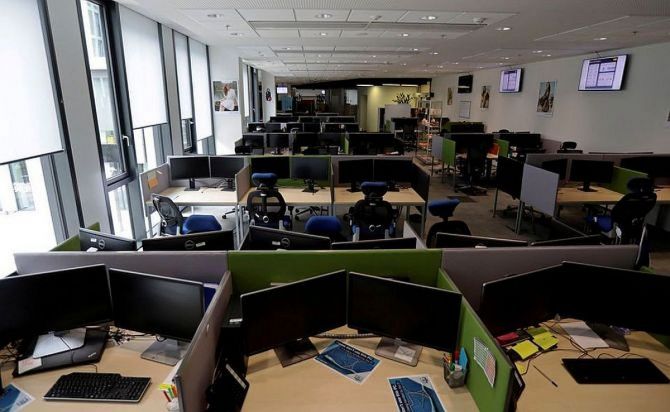The demand for flexible office space is emerging as India's top short-term portfolio strategy, as 47 per cent of companies want to increase its use over the next 12 months, according to a survey by property consultant CBRE.

Flexible office space is a workspace designed to provide employees with a variety of different places and ways to work.
These spaces can be easily modified to fit the needs of any new project or role.
The CBRE survey further pointed out that 56 per cent of the respondents intended to have more than 10 per cent of the total office portfolio as flexible spaces by 2025, indicating that flexible spaces will continue to be a key component of occupiers' portfolios.
The survey also pointed out that as "return to office" plans are ramped up in a hybrid environment, occupiers would strive to find the middle ground between supporting flexibility and ensuring predictable occupancies can utilise their space optimally.
"As a result, formulating hybrid working rules and policies that balance business goals with workforce needs would be at the top of occupiers' agendas," CBRE said.
Remote hiring is expected to focus on a combination of work-from-home (WFH) and satellite offices, enabling new employees to periodically visit the office to connect with colleagues and become acquainted with the company's practices and culture.
According to CBRE, this hybrid approach was favoured by 35 per cent of the respondents.
"In terms of office portfolios, our survey reveals that occupiers will continue to expand into flexible office spaces.
"An impressive 87 per cent of respondents expect to either maintain or increase the percentage of flexible spaces in their portfolios over the next two years.
"We anticipate a significant occupier interest in allocating over 10 per cent of their office portfolios to flexible spaces over the next two years," said Anshuman Magazine, chairman and chief executive officer (CEO) - India, South-East Asia, Middle East and Africa, CBRE.
The survey highlighted a change in companies' approach to bringing employees back to the office, which diverges from the trends seen in 2021 and 2022, despite the prevalence of hybrid working arrangements.
In the quarter that ended on March 31, 96 per cent of respondents said they preferred working in the office for at least three days per week.
However, there has been a significant rise in the inclination towards fully office-based strategies, as 40 per cent of respondents opted for this approach in the previous quarter, compared to 18 per cent in July 2022.
"The increased focus on return-to-office (RTO) plans by occupiers, driven by factors such as WFH fatigue, attrition, and moonlighting, has resulted in a gradual upswing in office occupancies since the second half of 2022, majorly across sectors including BFSI, engineering & manufacturing, life sciences, e-commerce, media & marketing," said Ram Chandnani, managing director, Advisory & Transactions Services, CBRE India.
"Our latest survey findings point out that nearly one-third of the respondents reported a utilization rate of more than 75 per cent."












 © 2025
© 2025